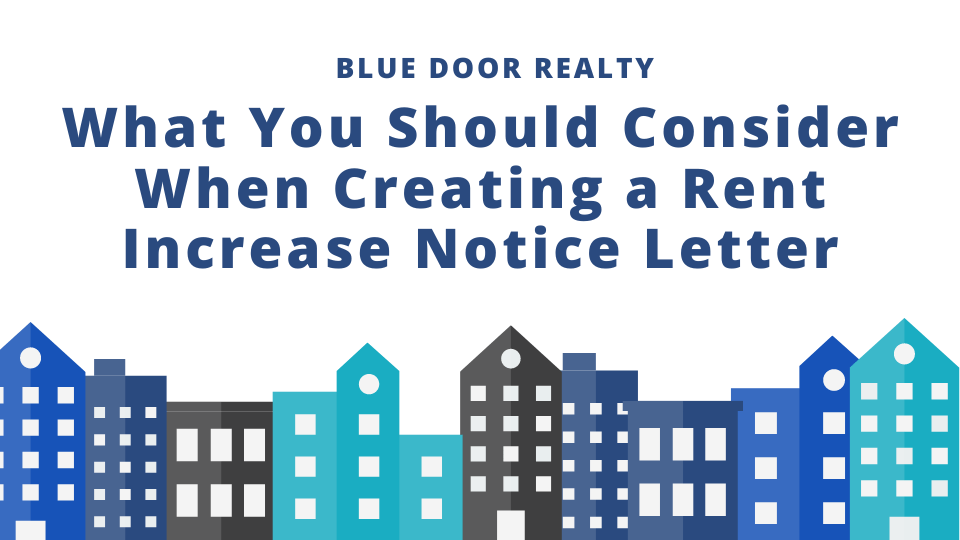Part of generating a good rental income is increasing the rate from time to time due to the rise of utility costs, additional upgrades by providing more amenities, and inflation. However, you need to review the factors to consider before the rental price adjustment.
Changing the rental fee upwards does not really equate to a bad thing since it allows you to offer more value to the tenants. You can use the rental funds to budget for property renovations which can lead to even more comfort for the residents.
Besides setting the right rental fee increase, you need to prepare how to inform this rate hike to your renters. Read this article to guide you on writing an effective rent increase notice letter that reduces any issues with a renter and the contract of lease.
Defining a Rent Increase Letter
A rent increase letter is a notice you send to renters to inform them about the rental fee adjustment. If you have a traditional rental property, you are most likely to apply the new rental fee when the current lease agreement ends.
Rent increase letters have two main functions, which are:
- To provide renters with the reason for the rate hike and the new monthly fee
- To act as a supporting document that landlords can keep to show that enough notice has been given to the renter

Creating rent increase letters, however, is dependent on the state laws that cover these notices. These laws can change based on the state where your rental space is located. Some states have laws that restrict the number of times you can augment the rent and the period you can hike it.
Notice Period Requirement
With traditional leases, you can only increase the rental rate when the tenancy expires. But in general, a 30 or 60-day period should be enough to notify the renter. Again, this mainly rests on your state and the lease type.
Creating a rental agreement clause that declares rent increases can be done even before a tenancy ends allows the landlord to raise the rent, as long as the renter’s signature appears on the contract. If you offer property updates, then some renters may be willing to agree to this condition.
You need to ensure that the notice period for your rent increase adjustment is compliant with your local laws.
Allowable Maximum Rent Increase
Rental property owners cannot raise the rent without checking if their state has rent control regulations. Most landlords hike the interest between 3% to 5% annually. They research the local rental market demand before setting the increase.
You just need to provide a reasonable notice period, adjust the rate after the lease agreement expires (unless the contract has a clause to raise the rent anytime), and do it without a retaliatory or discriminatory reason.

When Can Landlords Increase the Rent
If you own a rental unit, you can actually raise the rent for whatever reason but providing a justified reason can encourage renters to pay the increase willingly.
In your rent increase notice letter, you can mention:
- Inflation is rising – this can help renters understand that the profit is smaller than before and increasing the rate is necessary.
- Utility bills and maintenance costs are high – service providers can also reduce your revenue when they adjust their prices higher so increasing the rent is expected.
- Renovations are performed – a popular reason, future property upgrades are acceptable to tenants, as long as the rate hike is reasonable.
- Increase in property taxes – adjusting the rental fee is reasonable to keep earning the same profit margin
It is recommended to be upfront with the reason since renters value transparency. Hiding the real reasons would only encourage them not to renew and find another rental to transfer.
Helpful Tips to Follow
- Landlords must issue a rent increase notice letter before expecting the renter to pay for the adjusted rental fee. Verbally cascading the information to the tenant can lead to conflicts since oral notices are not legally binding.
- No rent increase can be done until the lease term ends. However, if a clause was included in the agreement and the tenant signed it, then the new rental price can be followed.

- The rent increase notice letter should be given within a 30 or 60-day period prior to the lease ending. However, the notice duration can also be adjusted according to the increase in rate.
- If you want to prevent your renters from moving out, make sure that your rate adjustment is justified.
- Increasing the rent to retaliate or discriminate against a renter is illegal.
- Tenants can always refuse a rent increase lawfully. However, if the rent change falls within reason, then the occupants must leave the rental space.
Creating a Rent Increase Notice Letter
Making a notice simple and straightforward is best. Avoid including too many unnecessary details. It is preferable to be concise and direct.
Your rent increase notice letter should include:
- The name and property address of the tenant
- The amount of the rental fee increase
- The effectivity date of the rate increase
You can also include the following details:
- The date of the lease expiry
- The amount of time the renter can decide to accept or reject the new rent adjustment
- The period of time the renter can create a non-renewable notice if they disagree with the rent increase
- The reason/s for increasing the rental rate
Forwarding the Rent Increase Notice Letter
Have the letter reviewed by a lawyer first then pick the best delivery method. You can send the letter in person, by email, or certified mail which is recommended.
Bottom Line
Always make sure to review the local laws in your state concerning rental increases to ensure you are not breaking any policy. Lastly, state a clear reason for the rate hike to ensure you keep your renters around for the long term.
If you’re a landlord looking for a professional property management company to manage your rental properties, contact Blue Door Realty today!

